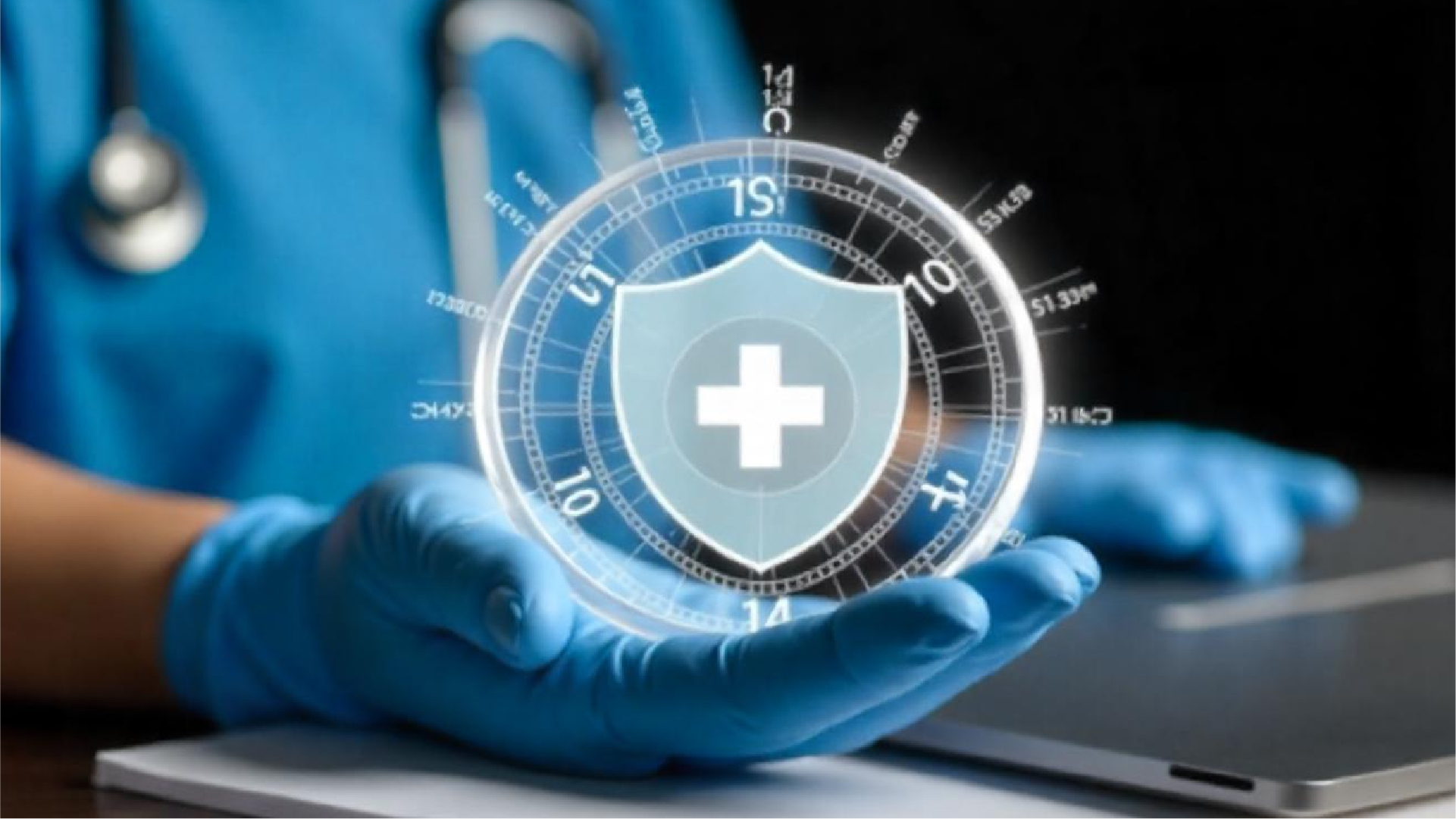Best Practices to Protect Patient Privacy in the Digital Age
Healthcare's digital evolution is reshaping patient care, ushering in an era where electronic health records, telemedicine, and online patient portals are no longer novelties but necessities. Yet, as these technologies streamline operations and expand access, they also open the door to heightened privacy risks. Alarmingly, in the U.S., there are almost two major healthcare data breaches daily, each involving at least 500 records—exposing sensitive patient information to potential misuse.
In light of these developments, safeguarding patient privacy transcends regulatory compliance—it becomes a moral obligation. Patients entrust their most confidential information to healthcare providers, and a breach could devastate trust and tarnish a provider's reputation irrevocably. In this blog, we will explore proven strategies that healthcare organizations must employ to protect patient privacy effectively.
Understanding the Risks of Digital Healthcare
The shift from paper-based records to digital platforms has made healthcare more efficient but also more vulnerable to cyber threats. In 2021, 66% of healthcare organizations reported being hit by ransomware attacks, up from 34% in 2020. Cybercriminals target healthcare because of the sensitive and often lucrative nature of personal health information (PHI).
A breach can expose sensitive data, including diagnoses, medications, and financial information. Beyond the immediate financial and operational costs of a data breach, the impact on patients can be devastating—leading to identity theft, emotional distress, and a loss of trust in their healthcare provider.
The stakes are high. Therefore, healthcare providers must adopt stringent data protection measures to minimize the risk of breaches and ensure compliance with regulations like the Health Insurance Portability and Accountability Act (HIPAA).
Staying Compliant with HIPAA and Other Regulations
At the heart of patient privacy protection is compliance with laws and regulations. HIPAA, enacted in 1996, establishes national standards for the protection of patient information. Under HIPAA, healthcare organizations must implement physical, administrative, and technical safeguards to ensure the confidentiality, integrity, and availability of electronic PHI (ePHI).
Key HIPAA Requirements:
- Access Control: Only authorized individuals should have access to ePHI. Implementing role-based access and multifactor authentication is essential.
- Encryption: Encrypt data both in transit and at rest to ensure that, even if breached, the data cannot be easily read.
- Audit Controls: Maintain an audit trail that tracks access to patient data, so you can identify any unauthorized attempts or suspicious activity.
In addition to HIPAA, healthcare organizations may need to comply with other regulations depending on their location. For instance, the General Data Protection Regulation (GDPR) applies to any organization handling the data of EU citizens, even if they are based outside the EU.
Best Security Practices For Healthcare Providers
Implement Strong Encryption and Secure Data Storage
Encryption is a critical first line of defense. Even if cybercriminals manage to breach your systems, encrypted data is useless without the decryption key. Furthermore, follow the steps below to ensure top-notch protection of your patient data:
- High-level Encryption: Employing a high-level is one of the most important steps that must be followed and should be applied to both data in transit and data at rest.
- Secure Backup Protocols: Implement automatic, regular backups to an offsite, secure location. In the event of a data breach, having these backups ensures you can recover data without resorting to paying a ransom.
- Cloud Security: If you use cloud-based storage, ensure the provider complies with HIPAA and other regulatory standards. Cloud security should include encryption, regular security audits, and clear data ownership agreements.
Regular Security Audits and Vulnerability Assessments
Security isn't a one-and-done task. New vulnerabilities and attack methods are constantly emerging, so regular security audits are essential to maintaining a strong defense. Healthcare organizations should conduct regular security audits including:
- Internal Audits: Perform periodic audits of your own systems to check for weaknesses in encryption, access control, and other security measures.
- Third-Party Audits: Engage external auditors to conduct comprehensive security assessments. Third-party vendors often provide fresh perspectives and may identify vulnerabilities that internal teams overlook.
- Risk Assessments: Analyze the specific risks your organization faces, whether from third-party vendors, outdated software, or undertrained staff.
Train Healthcare Staff on Data Security Protocols
Human error remains one of the most significant causes of data breaches. Employees must understand their role in protecting patient data and the importance of following security protocols. Some of the key training topics include:
- Phishing and Cyber Threats: Teach staff how to recognize and avoid phishing attacks, which are often used to gain unauthorized access to systems.
- HIPAA Compliance: Ensure all employees are up to date on HIPAA requirements and understand the penalties for non-compliance.
- Access Management: Reinforce the importance of limiting access to PHI based on job roles. Staff should only access the minimum necessary information required to perform their duties.
- Incident Reporting: Establish clear protocols for reporting suspected breaches, and ensure staff understand the urgency of acting quickly in the event of a security incident.
Regular, ongoing training helps ensure that staff remain vigilant and knowledgeable about the latest threats and best practices.
Strengthen Your Incident Response Plan
Despite best efforts, breaches can and do happen. Having a robust incident response plan can minimize the damage and ensure a swift recovery. Some of the elements of an effective incident response plan include:
- Immediate Containment: If a breach is detected, immediately contain the affected systems to prevent the spread of the breach.
- Investigation and Reporting: Quickly determine how the breach occurred, what data was compromised, and notify affected patients as required by HIPAA and state laws.
- Recovery: Healthcare providers should work with their IT teams and retrieve lost data. If encrypted backups are in place, this process can be significantly faster.
- Post-Breach Review: After the incident is resolved, conduct a thorough review to identify vulnerabilities that led to the breach and take corrective action.
In 2021, it took healthcare organizations an average of 22 days to recover from cyberattacks, demonstrating the need for a well-coordinated response plan to minimize downtime and reduce costs.
Secure Third-Party Vendor Relationships
Healthcare providers often rely on third-party vendors for software, cloud storage, and other services. However, these partnerships introduce additional risk if the vendors do not adhere to the same strict data protection standards.
- Vendor Assessments: Regularly evaluate the security practices of any third-party service handling PHI. Ensure they have adequate encryption, backup, and data protection protocols.
- Business Associate Agreements (BAA): Ensure that all vendors sign a BAA, which legally obligates them to comply with HIPAA's requirements for safeguarding patient data.
In the case of the UCHealth data breach, it was a third-party vendor that exposed nearly 49,000 records, demonstrating that third-party risk is real and must be managed effectively.
Conclusion: A Holistic Approach to Patient Privacy Protection
In the digital age, protecting patient privacy is more challenging than ever before. However, by implementing best practices such as encryption, regular audits, staff training, and incident response planning, healthcare organizations can significantly reduce the risk of data breaches.
Moreover, compliance with HIPAA and other relevant regulations is not just a legal requirement—it’s a way to earn and maintain patient trust. As the frequency and severity of cyberattacks continue to rise, healthcare providers must remain vigilant, proactive, and committed to safeguarding patient data at every step.
With the right strategies in place, healthcare organizations can navigate the complexities of the digital landscape while protecting the privacy and well-being of their patients.
Secure your patient information with confidence. Learn how our platform can help streamline your case data management. Contact us for a demo today.







